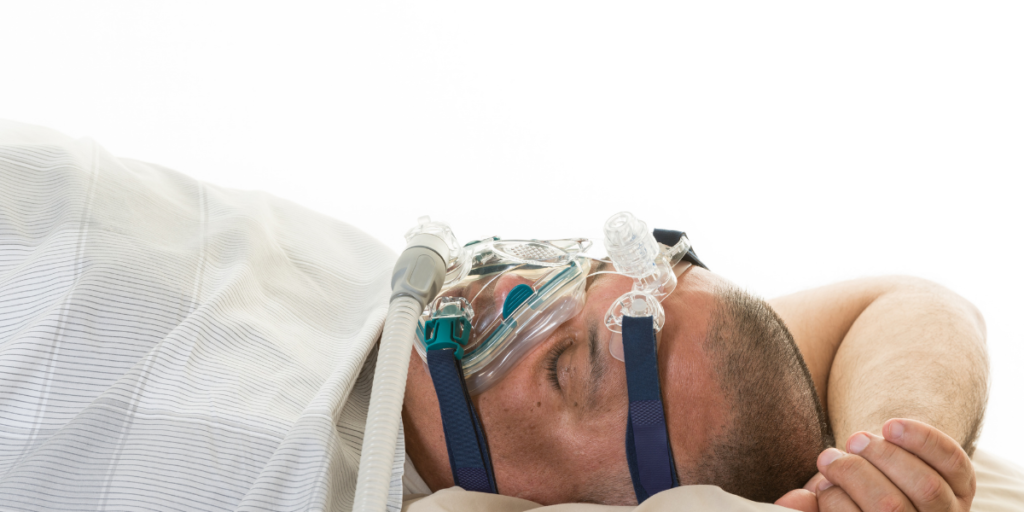The Obesity Pandemic
One in 2 Malaysians are overweight or obese. A national study by the National Health and Morbidity Survey in 2019 found that 50.1% of Malaysians have a BMI of >25.0 kg/m2.
Obesity is defined as a BMI of >30 kg/m2, whereas adults with a BMI of 25.0-29.9 kg/m2 are considered overweight.
As of 2019, 19.7% of Malaysians were classified as obese. The percentage is expected to double to approximately 41% by 2035. There are multiple factors contributing to this, including lifestyle – diet, sedentary lifestyles, poor sleep hygiene, stress levels and genetic factors – direct relatives who are also obese.
Obesity comes with its own set of health challenges, including an increased risk of developing type 2 diabetes mellitus, high blood pressure, high cholesterol, liver disease, osteoarthritis and certain cancers (colon, uterine, breast).
Obesity also increases the risk of developing a heart attack or stroke. Obese individuals are also all the more vulnerable to mental health challenges, like depression, anxiety and eating disorders.
Fat Shaming
Sadly, there is still a social stigma when it comes to obesity – they are often viewed as people who ‘have no self-control’. They are shamed for their weight and appearance, ‘fat-shaming’. It often pushes them into the world of diet culture.
They tend to marry less often, and face bias and discrimination in career opportunities. In fact, obese individuals earn less than their average-weight peers.
Schooling children also tend to suffer the repercussions of weight-related stigma than their counterparts, which has detrimental effects on their psychological and physical well-being.

What is Bariatric Surgery?
Bariatric stems from the Greek words “baros” which means weight and “iatrikos”, which means medicine. Bariatric surgery is otherwise known as weight loss or metabolic surgery.
There are 2 types of surgeries –
Sleeve gastrectomy
Surgical staplers reduce the stomach size by 80%, making it much smaller.
The stomach is not able to contain as much food and liquid. Therefore, it will help to reduce the amount of calories eaten.
Removing this stomach portion also reduces the levels of ‘hunger hormones’, which increases satiety and decreases hunger. It is a relatively safe procedure with little-to-no complications.
Also, it is an extremely effective way of aiding in weight loss and reducing blood sugar levels.
Roux-en-Y Gastric Bypass
Otherwise known as the gastric bypass surgery, it is often done laparoscopically. The stomach is divided into 2, and the larger part of the stomach is ‘bypassed’, rendering it non-functional. This part of the stomach can no longer digest or store food.
The small intestine is also divided and then attached to the smaller part of the stomach pouch, which allows food to pass there. It resembles the shape of the letter Y, hence the name of the procedure.
This reduces the absorption of food into the body. Similarly to the sleeve gastrectomy, this procedure significantly reduces hunger, increases satiety and thus enables weight loss. It also improves type 2 diabetes mellitus.
Both surgeries can cause long-term weight loss and reduce obesity-related complications.
Do I Need Bariatric Surgery?
It is not for everyone. Not everyone who is obese requires bariatric surgery.
Your physician will generally encourage you to go the non-surgical route first- with lifestyle interventions, focusing on diet and exercise.
Your physician may only suggest you as a candidate for this surgery if you
- Have a BMI of ≥35 kg/m2
- Have a BMI of ≥30 kg m2 and also have type 2 diabetes mellitus
Let’s dive into the benefits of bariatric surgery.

Your Metabolic Health will Improve
Aside from weight loss, bariatric surgery significantly reduces your blood pressure, blood sugar levels and cholesterol levels. These 3 diseases are coined as ‘metabolic syndrome’, and are significant risk factors for developing cardiovascular diseases.
Type 2 Diabetes Mellitus
A staggering 85% of individuals with type 2 diabetes mellitus are either overweight or obese. Studies have found that bariatric surgery has the capacity to effectively regulate blood sugar levels.
Sometimes, obese individuals still have elevated blood sugar levels despite taking diabetic medications or insulin. Bariatric surgery can bring about a reversal of diabetes. Results can be seen almost immediately – from days to weeks post-surgery. Furthermore, bariatric surgery can prevent the development of diabetes mellitus.
It improves metabolic parameters by reducing insulin resistance and improving control over blood sugar levels.
High Blood Pressure and High Cholesterol
Did you know that approximately 64% of severely obese individuals have high blood pressure and high cholesterol?
Weight loss, be it through lifestyle interventions or surgery will inevitably lower your blood pressure and cholesterol levels. This is because your organs do not need to work excessively as before.
However, this does not mean you should stop taking your medications! Discuss with your physician about your medication and how your consumption might change after surgery.
You have a Lower Cardiovascular Risk
Excess weight can add unnecessary stress to our cardiovascular system.
This can lead to adverse health issues like elevated blood pressure and raised cholesterol levels, which then puts one at a higher risk of developing heart disease. High blood pressure can make the heart pump oxygenated blood harder to the entire body. It causes the heart chambers (particularly the left ventricle) to thicken, which increases the risk of developing a heart attack or heart failure.
High cholesterol increases fatty deposits in your blood vessels, narrowing blood flow. When it breaks away, it can get clogged in a smaller blood vessel, blocking oxygenated blood supply to a certain organ, often the heart or brain.
Bariatric surgery serves to reduce these risks. It lowers the likelihood of experiencing heart attacks, stroke, heart failure and atrial fibrillation- a condition characterized by rapid and irregular heartbeats.
Sadly, in Malaysia, heart attacks are the leading cause of death, whereas strokes come in third.
You Sleep Better at Night
Obese individuals often suffer from this. Obstructive sleep apnea is a condition where your breathing is obstructed during sleep.
Signs and symptoms of obstructive sleep apnea include
- Snoring while sleeping
- Daytime sleepiness
- Abrupt awakenings at night- gasping and choking for air
- Headaches upon waking up
- Dry mouth in the morning
- Difficulty concentrating or focusing during the day.
- Feeling tired and fatigued despite sleeping ≥7 hours the night before
- High blood pressure

Obstructive sleep apnea, if severe enough, can potentially cause suffocation. A CPAP (continuous positive airway pressure) is the most common form of treatment. Nevertheless, treatment is expensive.
Some people do find it uncomfortable, and it takes some time to get used to it. Nosebleeds, a dry mouth and nasal congestion are some side effects.
Losing weight, be it through surgical interventions or lifestyle interventions can significantly reduce the severity of obstructive sleep apnea.
You Live Longer
Although none of us can be assured of reaching the age of 100, it is universally acknowledged that undergoing bariatric surgery can significantly increase one’s life expectancy compared to non-surgical interventions.
This is because weight loss can reduce the risk of obesity-related complications, like heart attack or stroke. A study done in Sweden found that obese individuals who went through bariatric surgery lived longer than those who did not. This is because our organs will be less burdened. We will have a boost in mobility too.
Bariatric surgery will give us an improved opportunity to pursue a healthier lifestyle, a journey that might be more challenging and prolonged without the surgical intervention.
Bariatric surgery is not a quick fix; rather, it serves as a catalyst, which launches us onto the journey to pursuing a healthy lifestyle.

You have a Better Quality of Life
Beyond the science of it all, it all boils down to how you feel day-to-day. Health is wealth and something we often take for granted.
Our physical well-being is very closely intertwined with our emotional and mental state. It truly is the little things – feeling tired all the time, getting breathless from walking, getting out of bed with aches and pains. These can take a toll on our mood and set the tone of our day.
It limits our ability to enjoy life and spend time with our loved ones. Obesity not only affects an individual physically but mentally as well. Many do suffer in silence, as they buy into the belief; ‘I deserve to feel this way because of my size’.
Some even doubt if they can even lose the weight after multiple efforts.
We want you to be able to feel your best, both physically and mentally.
Is Bariatric Surgery for Me?
Bariatric surgery provides enormous benefits. However, it is not and should not be your first option for weight loss.
It is often only recommended under specific circumstances as mentioned above, and on a case-by-case basis. Managing obesity is never clear-cut, and treatment for every individual is different. If you are on a weight loss journey and keen to embark on a healthier lifestyle, focus on lifestyle changes first.
Diet and exercise, sleep hygiene as well as good stress management are a good place to start.
Do not hesitate to consult a physician and seek a second opinion before making an informed decision.
You only have one life. Go and live it!
References
- Chong CT, Lai WK, Mohd Sallehuddin S, Ganapathy SS. Prevalence of overweight and its associated factors among Malaysian adults: Findings from a nationally representative survey. PLoS One. 2023 Aug 2;18(8):e0283270. doi: 10.1371/journal.pone.0283270. PMID: 37531379; PMCID: PMC10395944. [Last accessed 17 November 2023]
- Report: 41% Of Malaysia’s Adults Will Be Obese By 2035 https://codeblue.galencentre.org/2023/03/03/report-41-of-malaysias-adults-will-be-obese-by-2035/ [Last accessed 17 November 2023]
- Eisenberg D, Shikora SA, Aarts E, Aminian A, Angrisani L, Cohen RV, De Luca M, Faria SL, Goodpaster KPS, Haddad A, Himpens JM, Kow L, Kurian M, Loi K, Mahawar K, Nimeri A, O’Kane M, Papasavas PK, Ponce J, Pratt JSA, Rogers AM, Steele KE, Suter M, Kothari SN. 2022 American Society for Metabolic and Bariatric Surgery (ASMBS) and International Federation for the Surgery of Obesity and Metabolic Disorders (IFSO): Indications for Metabolic and Bariatric Surgery. Surg Obes Relat Dis. 2022 Dec;18(12):1345-1356. doi: 10.1016/j.soard.2022.08.013. Epub 2022 Oct 21. PMID: 36280539. [Last accessed 17 November 2023]
- Bays HE, Chapman RH, Grandy S; SHIELD Investigators’ Group. The relationship of body mass index to diabetes mellitus, hypertension and dyslipidaemia: comparison of data from two national surveys. Int J Clin Pract. 2007 May;61(5):737-47. doi: 10.1111/j.1742-1241.2007.01336.x. Erratum in: Int J Clin Pract. 2007 Oct;61(10):1777-8. PMID: 17493087; PMCID: PMC1890993. [Last accessed 17 November 2023]
- Schauer PR, Nor Hanipah Z, Rubino F. Metabolic surgery for treating type 2 diabetes mellitus: Now supported by the world’s leading diabetes organizations. Cleve Clin J Med. 2017 Jul;84(7 Suppl 1):S47-S56. doi: 10.3949/ccjm.84.s1.06. PMID: 28708482. [Last accessed 17 November 2023]
- Carlsson LMS, Sjöholm K, Jacobson P, Andersson-Assarsson JC, Svensson PA, Taube M, Carlsson B, Peltonen M. Life Expectancy after Bariatric Surgery in the Swedish Obese Subjects Study. N Engl J Med. 2020 Oct 15;383(16):1535-1543. doi: 10.1056/NEJMoa2002449. PMID: 33053284; PMCID: PMC7580786. [Last accessed 17 November 2023]